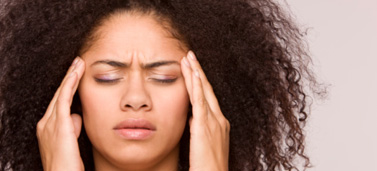“Weekend migraine” is a term used to describe migraine headaches that often occur specifically on weekends or during periods of relaxation after a stressful week. While the exact cause of weekend migraines is not fully understood, there are several factors that may contribute to their occurrence:
-
- Stress Relief: After a stressful week of work or school, individuals may experience a drop in stress hormones such as cortisol. This sudden relaxation can sometimes trigger migraines in susceptible individuals.
- Changes in Routine: Weekends often involve changes in routine, including alterations in sleep patterns, meal times, and hydration levels. These changes can disrupt the body’s internal clock and trigger migraines in some people.
- Altered Caffeine Intake: Changes in caffeine consumption habits, such as drinking more or less coffee on weekends, can trigger migraines in individuals who are sensitive to caffeine.
- Environmental Triggers: Weekend activities may expose individuals to different environmental triggers such as changes in weather, exposure to strong odors, or fluctuations in barometric pressure, all of which can precipitate migraines.
- Relaxation Headaches: Paradoxically, relaxation itself can sometimes trigger headaches or migraines in certain individuals. This phenomenon is known as a “let-down” headache and can occur when stress levels decrease suddenly.
Managing weekend migraines involves identifying and avoiding triggers, maintaining a consistent routine, staying hydrated, getting adequate sleep, and managing stress levels through relaxation techniques or stress management strategies. If weekend migraines are severe or occur frequently, it’s essential to consult a healthcare professional for proper diagnosis and treatment.
A migraine attack is far more than just a bad headache! A severe headache, lasting from 4 – 72 hours, is just one of the horrible symptoms of migraine. Suffers also experience a range of accompanying symptoms, such as feeling sick, even vomiting in some cases, visual disturbances or extreme sensitivity to lights, smells or sounds. A migraine attack can leave the person exhausted afterwards, sometimes for a few days.

There are different triggers for the onset of migraine symptoms. For some people it’s a particular food or drink, such as cheese or red wine. For others there’s a pattern of monthly or weekly migraines. Many people link their migraines to stress. A fairly common pattern, and one that I experienced myself, is the weekend migraine. This is where the migraine happens at the weekend, or on a day off work or at the start of a holiday.
Imagine carrying heavy shopping bags in both hands, after a long day’s shopping. You’ve just left your local Marks and Spencer and the car is parked way off in the local multi-story. By the time you’re half way to the car park, the bag handles are digging painfully into your fingers, but you can’t put the bags down now because the ground is wet. So you speed up to get back to the car as quickly as possible. Your fingers are numb by now. When you finally find the car, at last you can let go of the heavy bags – relief! But then the pain, as the blood returns to your bone-white fingers!
This is my image of the weekend migraine. During the busy working week, we are dealing with a heavy workload and may not be able to stop when we’d like to. Without realising it, our whole body is getting increasingly tense, with our neck and shoulders the tightest place of all.
When the weekend comes and we can at last let go and relax – relief! But then the pain as the blood supply returns to the cranium (the part of the skull around the brain)!
For immediate relief from the symptoms, many people take an over-the-counter product from their local pharmacy, such as paracetamol and codeine. Others need a prescription from their GP and it’s a good idea to have a medical check-up if your symptoms are severe or persistent.
In order to treat the underlying cause of the condition, many people now use holistic treatments. The treatment that I recommend is the one that worked for me! It’s called craniosacral therapy and it’s bliss! The practitioner uses gentle hands-on contact at your head and neck, while you are lying down in your comfortable clothes and nothing else to do but relax. You might dose off, or you might want to chat during your treatment. Whatever you do you will feel wonderfully relaxed and refreshed afterwards.
Give it a try. You might even begin to enjoy pain-free, energy-filled weekends again!
